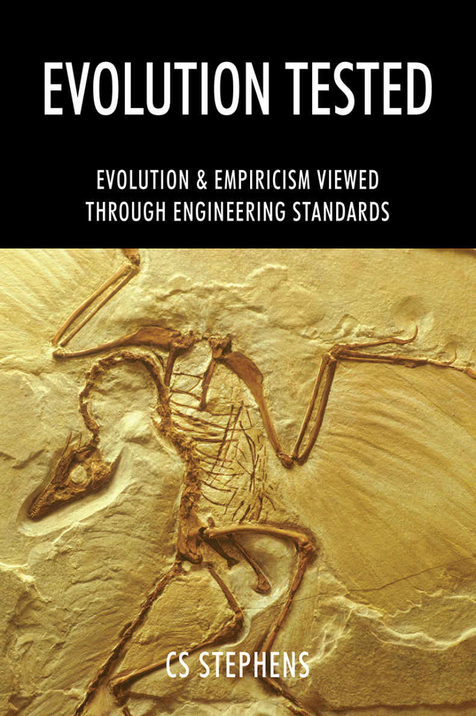
Author CS Stephens presents a delicately worded takedown of widely accepted truths related to evolution and natural selection in Evolution Tested: Evolution & Empiriism Viewed through Engineering Standards. Employing a unique engineering angle on empirical evidence and objective truth, this book attempts to challenge even the staunchest believers in the Darwinian tradition.
In the more than 160 years since Darwin released his theory of evolution through natural selection, there have been countless books tackling the validity and universality of the theory. The overwhelming support for and perennial buttressing of the theory through evidence of speciation events, genetic markers and the fossil record has resulted in the theory becoming broadly accepted dogma. However, Stephens gives voice to a minority faction, relying on a procedural explication of other accepted scientific facts as a counterpoint to the assumed truth of evolution.
Proceeding from an ontological and linguistic examination of science, evidence, fact, theory, proof, and truth itself, the author finds the assertions surrounding the hypotheses of evolution and natural selection to be lacking validity, or even to be downright false. Following a convoluted and tangential exploration of relevant verbiage, the author begins to pick through the history and progress of evolutionary theory, from the uncertainty of carbon dating and soft tissue remains to contradictions in chaos theory and the misleading conflations of genetic drift, phylogenetic trees, and “missing links.”
Many of the author’s claims are related to readily cited research articles, although the ultimate conclusions of the book are his own. Granted, there are aspects of evolutionary theory that are still considered highly contentious in certain circles, particularly religious ones, and branches on the tree of knowledge remain shaky. Stephens is thorough in his unearthing of such contradictions, and those who read his book with limited scientific acumen will appreciate the way he builds his argument step by step and with ample support, including five appendices and thorough indexing.
Stephens’ thesis does not seek to uphold religious dogma concerning the truth or falsehood of evolution, but only to present arguments that he believes have a basis in demonstrable probity, which he does so effectively. For instance, the suggestion that modern scientific exploration is too often grant-driven will find support among many readers. However, his bias is also difficult to hide, even behind hundreds of citations, lending the text a non-impartial tone, as some convenient omissions do undercut the book’s emphasis on scientific rigor.
In terms of raising important questions and casting doubt, Stephens efficiently deconstructs the nebulous areas of evolutionary theory, and he has constructed a strong, well-researched case for his basic conviction: that which is true must be comprehensible, logical, pragmatic and, to the greatest extent possible, infallible. His ideas are refreshing, and this bold foray will no doubt garner attention.
All in all, Stephens has written a brilliantly structured and comprehensively researched book on the questions surrounding the theory of evolution. For any reader curious about the weak points in Darwinian dogma, Evolution Tested may not be a fully impartial read, but it will be an enlightening one.
Book Links
STAR RATING
Design
Content
Editing
Get an Editorial Review | Get Amazon Sales & Reviews | Get Edited | Get Beta Readers | Enter the SPR Book Awards | Other Marketing Services























Leave A Comment